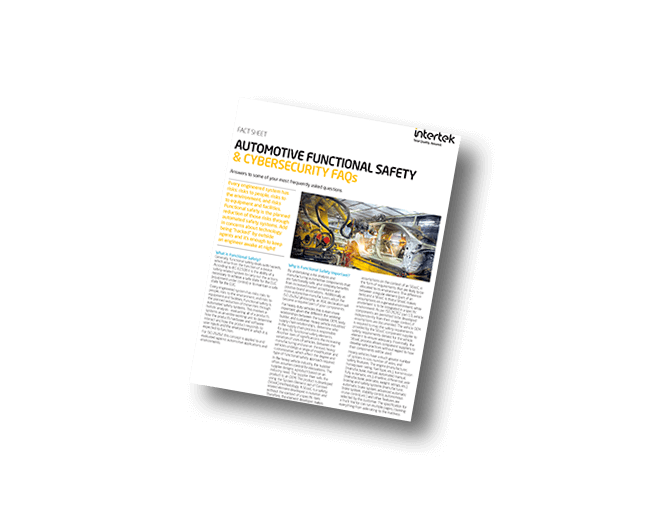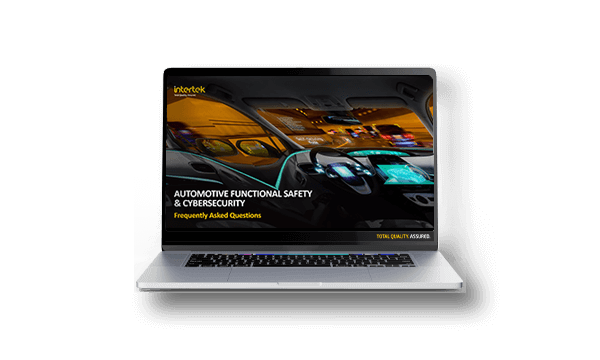International Standard for Functional Safety in the Automotive Industry
What is ISO 26262?
ISO 26262 is an international standard for functional safety in the automotive industry. It provides a framework for ensuring the safety of electrical and electronic systems within road vehicles. The standard focuses on reducing risks caused by potential malfunctions in these systems throughout their lifecycle, from design and development to production, operation, and decommissioning.
Key Features of ISO 26262:
- Scope:
- Applies to vehicles with a maximum gross weight of up to 3,500 kg (passenger cars).
- Covers hardware, software, and system-level safety.
- Addresses the entire product lifecycle, from concept to decommissioning.
- Automotive Functional Safety:
- Ensures that systems work correctly even in the presence of faults or failures.
- Requires hazard and risk analysis to define safety requirements.
- ASILs (Automotive Safety Integrity Levels):
- Defines levels of safety criticality from ASIL A (lowest criticality) to ASIL D (highest criticality).
- Determines the rigor required for development processes based on the severity, exposure, and controllability of potential risks.
- V-Model Development Process:
- Advocates a systematic "V-model" approach for development and testing, ensuring traceability between requirements and implementation.
- Risk Assessment and Hazard Analysis:
- Identifies potential hazards and quantifies their risks using severity, exposure, and controllability.
- Develops mitigation measures based on the identified risks.
- Product Lifecycle:
- Addresses safety considerations from concept, design, and production through operation, service, and decommissioning.
- Verification and Validation:
- Includes thorough verification and validation processes to ensure safety goals are met.
Applications for ISO 26262:
ISO 26262 is crucial for the development of:
- Autonomous driving systems
- Advanced driver-assistance systems (ADAS)
- Electrified powertrains
- Other critical vehicle electronic systems
By adhering to ISO 26262, manufacturers and suppliers aim to ensure safety, reliability, and compliance with regulatory requirements for automotive systems.
Get answers to some of your most frequently asked questions about Automotive Functional Safety and Cybersecurity with our comprehensive FAQ info sheet.
Intertek's Solutions for ISO 26262
Every engineered system has risks: risks to people, risks to the environment, and risks to the surrounding infrastructure. Functional safety is the planned reduction of those risks through automated safety systems. This involves a holistic analysis - evaluating all of a vehicles systems as an entire working unit to determine how the vehicle’s hardware and software interact and how it responds to user inputs and the environment in which it is expected to function.
Functional safety extends to the use of electronics, software, and other types of systems to mitigate risk for a vehicle, typically accomplished through equipment with sensory, logic, and control elements. These systems can include features that make decisions with regards to the autonomous control of the vehicle. In many cases these features would be classified as ASIL-D, the highest classification of injury risk defined in ISO 26262 and as such require the highest level of scrutiny when assessing risks and ensuring that safety goals are sufficient and have been achieved.
Intertek has a full scope of services to support functional safety goals and ISO 26262 compliance;
- Product design troubleshooting & recommendations
- R&D support
- Identify/solve regulatory & certification requirements
- Identify/solve testing challenges
- Performance & safety assessments
- Systems plan development, including analysis on integrated components
- Assistance with documentation
- New technology requirements
- New automotive market demand
- Simplifying complex requirements
- Design for compliance with current/upcoming regulations
- Avoid common failure pitfalls
- Resolve existing issues and anticipate future challenges
- NRTL Functional Safety Certification to ISO 26262
- IEC 61508 SIL Mark
- UL 4600: Standard for Safety for the Evaluation of Autonomous Products
- ISO 21434: Automotive Cybersecurity Solutions
Automotive Functional Safety Resources
Automotive Functional Safety & Cybersecurity FAQs
Get answers to some of your most frequently asked questions about Automotive Functional Safety and Cybersecurity with our comprehensive FAQ info sheet.
Automotive Functional Safety & Cyber Security Webinar
View our complimentary on-demand webinar where Intertek experts answers a variety of Frequently Asked Questions around Automotive Functional Safety and Cybersecurity.
Knowledge Center
Master FMVSS 108 Compliance – Download the Expert Guide
Automotive Functional Safety & Cyber Security FAQs
Development of Driveline Electrification Technologies White Paper
Understanding Failure Analysis and Answering your Frequently Asked Questions
The Top-7 FAQs of Autonomous Vehicles Testing
The Top-10 FAQs of Advanced Composites Testing
The Top-10 FAQs of Automotive Interior Testing
Accelerated Stress Testing to Manage Disruptive Market Changes Webinar
Transitioning to Structural Composites to Meet CAFE Standards
Automotive Interiors Testing White Paper


